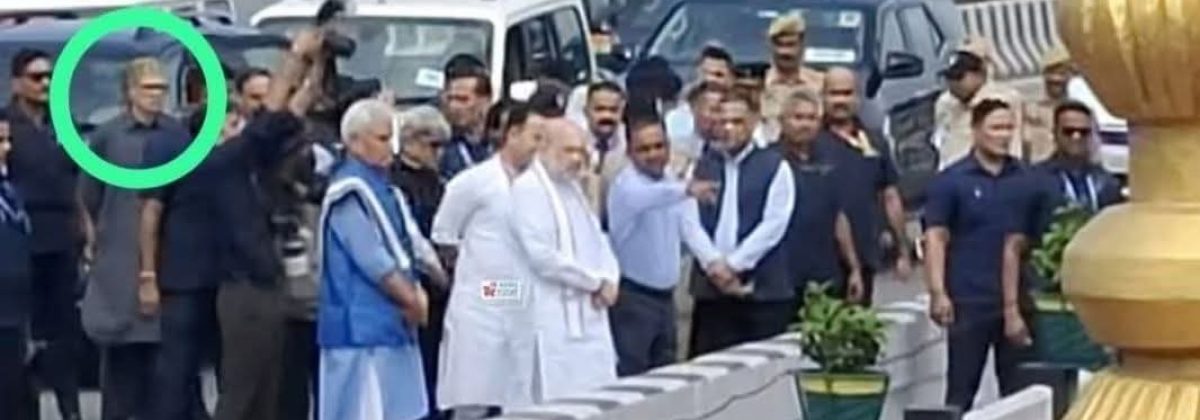By Wasik Murtaza
The images from Jammu today will remain etched in the public mind for reasons that go beyond flood devastation. On one side stood Union Home Minister Amit Shah, flanked by Lieutenant Governor Manoj Sinha and Leader of Opposition Sunil Sharma. Cameras caught them consoling families, announcing relief, and inspecting the Tawi’s swollen banks. Somewhere behind them, Chief Minister Omar Abdullah appeared—present, yet almost invisible.
For a man who technically heads the state government, Omar’s role seemed strangely ceremonial. He walked with the entourage, but his body language carried the posture of a defeated man. His expressions seemed to tell a story different from the scripted smiles around him—a story of humiliation and helplessness. In that group, Omar looked more like a spectator than the elected leader of Jammu and Kashmir.
This is not the first time Kashmir’s elected leadership has been reduced to the margins. Since the abrogation of Article 370, power has shifted steadily to New Delhi’s corridors. Even when elections returned Omar to the Chief Minister’s chair, the authority of that office remains clipped. Today’s visuals made that imbalance painfully obvious: the CM overshadowed by the Centre and outshouted by the Opposition.
Many observers note that Omar Abdullah’s government has often stayed on the sidelines when it comes to asserting real authority. Instead of taking a firm stand, the JKNC government has remained quiet, which is seen as an attempt to cling to power instead of fighting for what was taken away. This continuous silence by local leadership, especially during crises, leaves ordinary Kashmiris frustrated and questioning whether their votes carry any value or not.
What message does this send to the people who queued at polling booths only months ago, braving threats and disillusionment to restore some semblance of democracy? If their chosen leader can be made to appear powerless in public view, what does that say about the worth of their mandate? To sideline Omar Abdullah is not merely to humiliate one man—it is to trivialise the political will of an entire people.
Relief announcements lose meaning if they come packaged with the erasure of local leadership. The floods have already washed away homes, schools, and livelihoods; today’s political theatre risked washing away the very idea of self-respect.
For many watching in the Valley, the tragedy of Jammu’s floods may be remembered less for the destruction of nature and more for the display of power politics. The sight of their Chief Minister standing muted, pushed to the background, carried a symbolism no press release can erase: Kashmir’s voice is still struggling to be heard in its own house.

